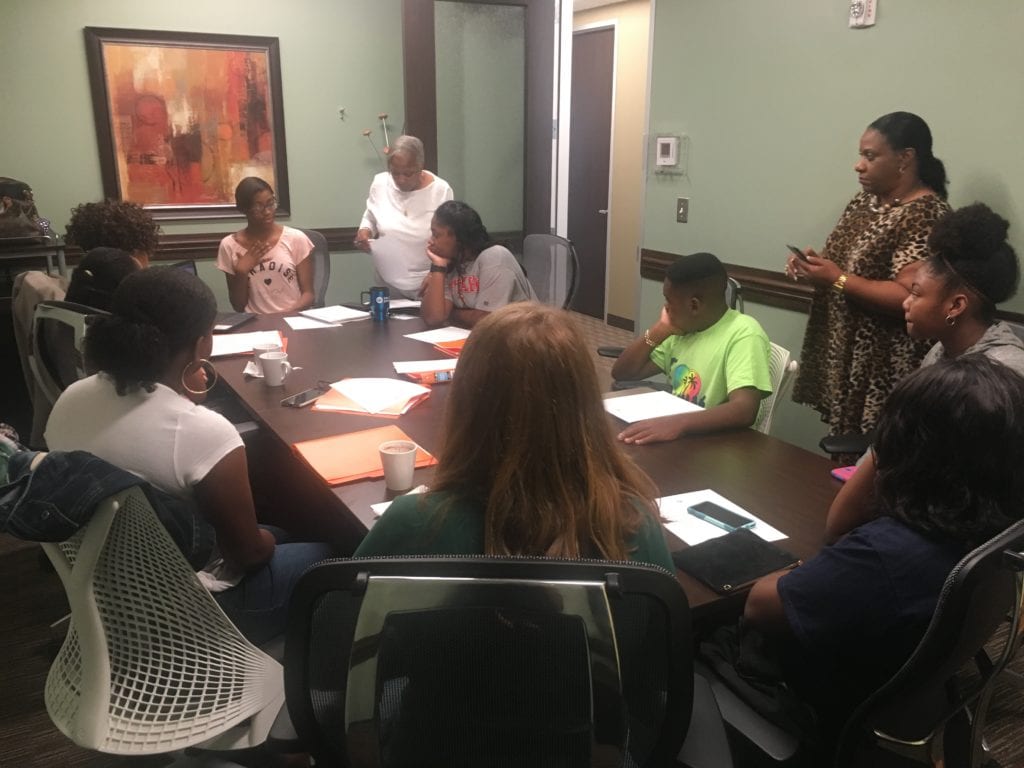
Young people in metro Atlanta are raising awareness to bullying and other violence, thanks to Angie’s House and its Healthy Relationship Training (HRT) Academy. The HRT Academy kicked off this month with participants from Rockdale, Newton and DeKalb counties. The new initiative will provide educational and skills-building training for young people, caregivers and organizations that provide services to young people.
“Since 2012, Angie’s House has been educating the community about the effects of domestic and family violence on children,” said Angie’s House Executive Director Elaine Davis-Nickens. “To this end, the Healthy Relationships Academy will work to ensure that young people know that feeling safe, comfortable, and at ease expressing feelings are important qualities of a healthy relationship. We will also work to make sure the community at large and caregivers understand that young people model the behaviors that they see among their peers, family members and adults.”
The Academy’s flagship program – Youth Advisory Council – will guide the development of Angie’s House’s teen dating violence prevention, self-esteem, and anti-bullying programs. The council is comprised of nine youths ages 12-17 who have completed leadership training and will develop their own unique leadership style and presentation and platform skills by co-facilitating Angie’s House forums and workshops. The council will help Angie’s House reach its target population through peer-to-peer relationships.
“If we are going to help young people develop healthy relationships, it’s important we meet kids on their own level using language they understand,” said Davis-Nickens. “We have the platform and our council members will provide us with direction so that we can be the most effective. It’s young people talking to young people.”
According to the Centers for Disease Control and Prevention, in 2015, 20 percent of high school students reported being bullied on school property and an estimated 16 percent reported they were bullied electronically. Additionally, among high school students who dated, 21 percent of females and 10 percent of males experienced physical and/ or sexual dating violence. Programs and strategies developed by the Youth Advisory Council will work to prevent young people from becoming either victims or perpetrators.
“Unfortunately, many young people experience abusive behaviors, but do not identify the abuse as dating violence. For them, these behaviors are incorrectly seen as “normal,” and are not considered problematic,” Davis-Nickens said. “Our goal is to put an end to this vicious cycle.”
For more information on the Healthy Relationships Academy and Youth Advisory Council, visit Angie’s House online at www.angiesfirsthouse.org.


![Validate my RSS feed [Valid RSS]](https://web.archive.org/web/20240108205913im_/https://ocgnews.com/wp-content/uploads/2022/07/valid-rss-rogers.png)

